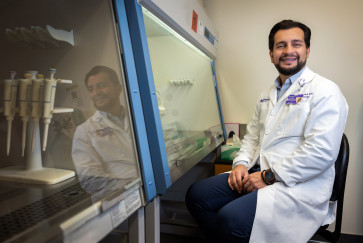Researchers are working to better understand how to mitigate the financial stressors that come with costly treatments for cancer patients.
In a first-of-its-kind study, Northwestern Medicine researchers sought cancer patients’ input on how they want to be screened for financial needs.
They learned that patients want their care team to address their concerns related to costs of care early in their treatment, according to the study, published Sept. 17 in JCO Oncology Practice.
Financial toxicity: A compounding problem
The financial impact of treatment, referred to as financial toxicity, includes direct costs, such as how much a patient directly pays the hospital for a surgery, and indirect costs, such as the amount of money a patient doesn’t earn when they take off a day of work to go to an appointment.
Prior research has shown that cancer patients who experience financial toxicity have worse quality of life and may be at higher risk of death. An early financial assessment can identify patients at risk, but there isn’t a consensus on appropriate timing or methods for financial screening.
“The psychological toll of financial toxicity or the stress and worry that comes with such financial concerns is particularly distressing for patients who are already going through the difficulties of cancer treatment,” said study corresponding author Dr. Laila A. Gharzai, assistant professor of radiation oncology at Northwestern University Feinberg School of Medicine and a Northwestern Medicine physician.
A desire for early, frequent financial screening
The study surveyed 738 patients who were primarily women battling breast cancer. It showed that most patients prefer their providers reach out regarding financial needs (83%), for this to take place early (82% said when they’re first diagnosed or starting treatment) and to be asked frequently about their concerns (78% said at each appointment or once per month).
“It is important to screen patients for risk of financial toxicity so that we can better identify those experiencing it and connect them with resources,” Gharzai said. “While this study was primarily in breast cancer patients, we can extrapolate these findings to all cancer patients, and this has important implications for policy. Continued work refining best practices for financial-toxicity screening should incorporate these patient preferences.”
Finding resources
For patients struggling with financial concerns during treatment, Gharzai said oncology care team members, including social workers and financial navigators, may be available to help identify resources and assistance with other needs, such as transportation. Cancer-specific organizations such as The Pink Fund, which partnered on the study, may offer money to help pay bills for qualifying patients.
Notes
Gharzai also is a member of the Robert H. Lurie Comprehensive Cancer Center of Northwestern University.
Other Northwestern authors include Yingzhe (Alex) Liu, Zequn Sun, Michelle Mohn, Alexis Larson, Sheetal Kircher and Betina Yanez.


